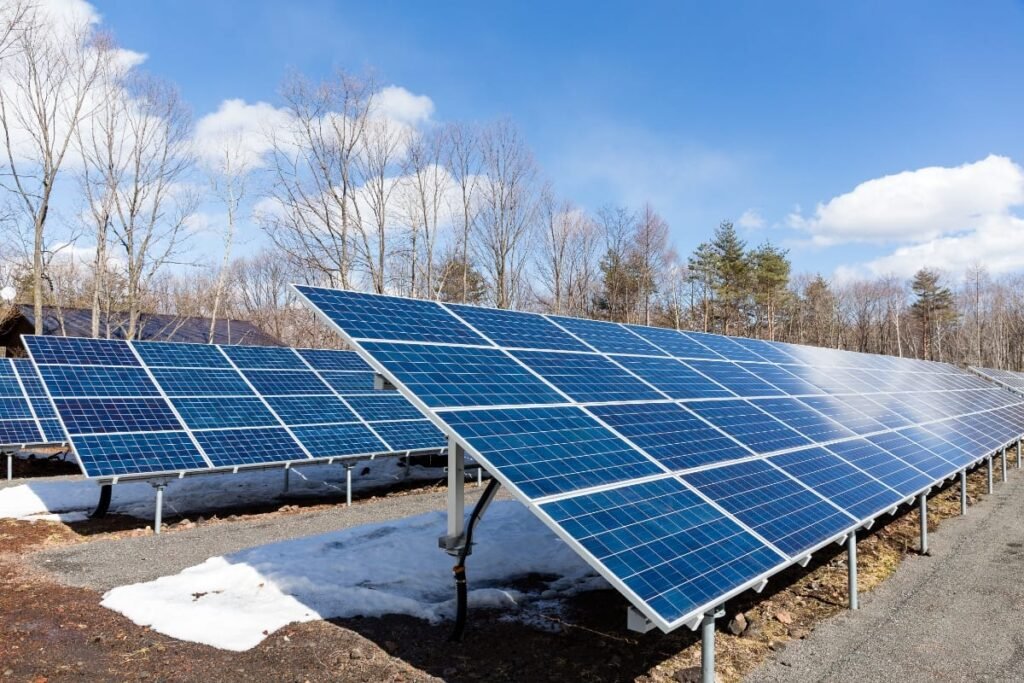
When considering solar energy, many people wonder, “Will solar panels still work on cloudy days?” After all, solar panels rely on sunlight to generate power, so it’s natural to assume that cloudy or overcast weather would reduce their efficiency. However, the truth is more nuanced, and the answer might surprise you!
Caring You because your Life is important. Nunc accumsan mauris et tincidunt finibus. Duis molestie in felis et auctor. Etiam ut gravida justo.
Yes, solar panels can still generate electricity on cloudy days, though their output will be lower compared to bright, sunny days. Solar panels don’t need direct sunlight to produce energy—what they need is light, and even on cloudy days, some sunlight is still reaching the Earth.
Cloud cover can reduce the intensity of sunlight, but solar panels can still capture diffuse sunlight (the sunlight that scatters in the atmosphere). The energy production may drop by 10% to 25% on cloudy days, but you’ll still be generating electricity.


Solar panels are designed to absorb sunlight, and even though the sky might be overcast, there is still enough diffuse sunlight for the panels to work. The efficiency of solar panels decreases with cloud cover, but they continue to function, just at a reduced capacity.
Modern solar panels are highly efficient and can operate in various light conditions. While cloudy days won’t produce the same amount of energy as sunny days, your system will still generate some power, which can be stored in a battery or sent to the grid for credit.
Another factor that helps your system perform in cloudy weather is the inverter. Solar inverters convert the DC electricity produced by the panels into AC electricity used in your home. These inverters are designed to adjust to fluctuations in sunlight, meaning that even when sunlight is low, the system can adapt and continue functioning efficiently.

While solar panels work in various weather conditions, it’s important to note that extreme weather (like snowstorms or heavy rain) can impact their performance. However, this is temporary, and as soon as the clouds clear or the snow melts, the panels will return to full functionality.
For regions with regular cloud cover or rainy weather, solar panels are still a smart investment. They may not produce as much energy as in sunnier climates, but they still offer a sustainable and cost-effective energy solution. Additionally, during the summer months or sunny days, your solar panels will produce excess energy, which can be stored or credited to offset the reduced generation during cloudy weather.
Similar to cloudy days, solar panels also work during winter months. In fact, solar panels are often more efficient in colder temperatures. Cold weather helps the panels operate more efficiently than they would in extreme heat. Snow can accumulate on the panels, temporarily reducing their efficiency, but this can be easily cleared off for optimal performance.
While solar panels are more efficient on sunny days, they can still produce electricity on cloudy days. With the right system in place and a battery backup, you can rely on your solar panels to work even in less-than-ideal weather conditions.
If you live in a cloudy or temperate climate, don’t let weather concerns stop you from going solar. The environmental and financial benefits of switching to solar energy are undeniable, and with modern technology, your system will continue to provide value even when the sun isn’t shining brightly.
Ready to Embrace Solar Energy?
Get in touch with us today for a consultation and discover how solar panels can work for you—rain or shine!
Share :
Get a custom quote in less than five minutes.

Helion Rise Energy provides sustainable solar solutions for residential, commercial, and industrial clients, promoting clean energy and environmental impact.